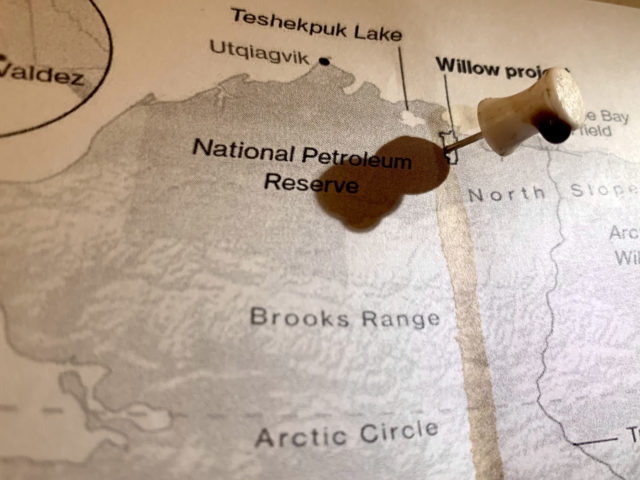UCLA community members expressed concerns over President Joe Biden’s approval of the Alaska Willow project, the largest oil drilling project on United States public land in recent years.
The project will be located on Alaska’s North Slope on the National Petroleum Reserve and could produce enough oil to emit 9.2 million metric tons of carbon pollution per year, according to the Biden administration. Biden approved the project March 13 despite promising to halt new oil drilling on federal land. However, several climate justice groups such as Earthjustice and Trustees for Alaska have filed a lawsuit to halt the project
ConocoPhillips, Alaska’s largest crude oil producer, currently holds lease rights to the land and oil, said Cara Horowitz, the executive director of the School of Law’s Emmett Institute on Climate Change and the Environment in an emailed statement.
The project was first approved by the Trump administration in 2020, and lawyers in the Biden administration supported the project, said Evan George, communications director for the Emmett Institute on Climate Change and the Environment.
Biden addressed the need for fossil fuel energy sources for the next several years in this year’s State of the Union Address, George said. He said he believes the administration is struggling with energy needs and security, adding that they believe the Willow project will help solve these issues.
“You have the federal government, in many ways, trying to meet the moment of the climate crisis, and also … approving fossil fuel projects that look very much like the past,” George said.
However, the project was initially halted in court during the Trump administration, he said, adding that they failed to consider the project’s environmental impacts.
The lawsuit raised concerns about how oil drilling in Alaska will negatively affect neighboring communities and wildlife, said Lydia Heye, a School of Law alumnus and Trustees for Alaska legal fellow.
The Willow project will directly affect the neighboring village of Nuiqsut, a predominantly Alaska Native community, Heye said. She added that it will directly impact animals such as the Teshekpuk Caribou Herd and other animals that the Nuiqsut need to survive.
Trustees for Alaska is a legal group that defends Alaska’s lands, waters, wildlife and people, according to its website. Heye is part of the Trustees’ legal team that filed for a preliminary injunction that would prevent ConocoPhillips from starting construction until the court hears the Trustees’ case, she said.
In 2021, an Alaska federal court ruled to vacate U.S. government approval of the project, citing issues with the original environmental analysis and leaving the project in need of further environmental review, which the Biden administration finished in early 2022, George said. The review addressed the concerns brought up by the court and included the decision to remove two of the five drilling sites in Alaska, according to the Bureau of Land Management.
George expressed concern over the Biden administration not honoring campaign promises of halting future oil drilling on federal lands. Congress and Biden’s administration recently passed the Inflation Reduction Act and the Bipartisan Infrastructure Law, both of which are significant climate deals to preserve the environment that contrast with the Willow project approval, he added. George said these two projects are accelerating the transition to clean energy, while the Willow project does the opposite.
“There’s a stark contrast in the campaign pledge that he made about new oil, but there’s also a stark contrast with other elements of his presidency,” George said. “The administration is both pressing ahead with implementing those really important laws and also approving this massive oil drilling project.”
Heye said the Biden administration may be concerned about backlash from halting the Willow project.
The legality of whether Biden could have prevented ConocoPhillips from drilling was also unclear, said Horowitz in an emailed statement. After leasing the area in 1999, the company requested a permit in 2018, according to ConocoPhillips.
“The Biden administration team almost surely felt boxed into a corner on this decision, both by politics and legally,” Horowitz said in an emailed statement.
The reduced project site holds 600 million barrels of oil, which Heye still believes will be destructive, she said.
A few days before the statement was released, the administration put out a plan to limit future industrial development in the National Petroleum Reserve in Alaska, Heye said, adding that they may not have done so without public backlash.
Heye said she believes that any version of this project would end up being harmful to the environment and surrounding wildlife. She added that an important thing she feels people can do is to continue to pay attention to the project’s developments because it is having a negative impact on the environment and Native communities.
“Make noise about Willow. Keep the administration’s feet to the fire about this,” Heye said. “In this day and age, we can’t afford any new fossil fuel projects, period,” she added.



Comments are closed.